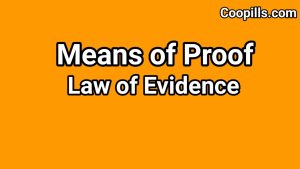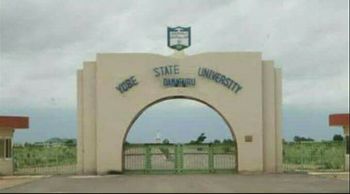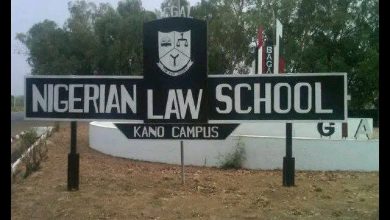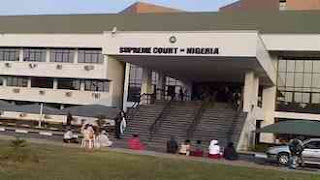Means of Proof
Table of Contents
In this article we shall be looking at Means of proof In law of evidence.

The Means of proof
There are three basic means of proof in the law of evidence namely:-
1- Oral
2- Real and
3- Documentary Evidence.
Oral Evidence
Oral evidence is the verbal assertion on oath of a witness offered in Court as proof of that which is stated. See S.126 of evidence Act. According to S.77 oral evidence must in all cases be direct.
Real Evidence
Real Evidence S.127 (d) E.A. dealt with the production of a material thing. It is anything other than testimony, admission hearsay or a document the content of which is offered as testimonial evidence. The material thing in question may be movable or immovable. If movable e.g matchet, gun, dresses e.t.c., they are tendered in Court as exhibits. If immovable e.g. land, property attached to land or the scene of an accident or murder, and the court take the view that an inspection is cogent and material to the proper determination of the questions in dispute. The procedure laid down in S.127 (2) E.A. must be followed. This procedure is better known as visit to the locus in quo.
Visit To Locus In Quo
The power of the presiding judge to conduct a visit to a locus in quo is derived from S.127 (b)
Two procedures are basis for the conduct of a visit to the locus in quo. See S.127 (2) (a- b)
(I) The court shall either be adjourned to the place where the subject matter of the said inspection may be and the proceedings shall continued at that place until the court further adjourns back to its original place of sitting or to some other place of sitting.
It is the trial judge that conducts the visit and not anyone else on his behalf.
(II) The court shall attend and make an inspection of the subject matter only; evidence, if any, of what transpired there being given in court afterwards.
It is usual to carry out an inspection before the close of the case for both sides. It is permissible to carry out the inspection after the judgement has been reserved. Whenever
the inspection is done the parties should be given a right to cross-examine themselves and the counsel a right to further address the Court, if necessary.
Consequences of Non-Nompliance: This depends on the effect on the judgement as a whole. See S.251 of evidence Act.
Exclusion Of Oral Evidence By Documentary Evidence Sometimes a document is tendered and admitted and objection raised against such document. The contents of such document may be proved by either primary or secondary evidence. See S.128. The general rule is that the document should speak for itself and extrinsic evidence cannot be adduced to contradict, alter, add to or very the
contents of such document.
Exceptions; these are contained in S.128 (1) (a-e) and in S.129(2) and (3) Also, Oral evidence can be given if what is to be proved is the existence of the relationship and not the terms on which it was established or carried on. See Odunsi vs Bamgbala (1995) I SCNJ 271 at 291
Rule Against Hearsay Evidence
The Rule against Hearsay Evidence is;
The provision of S.126 (a-d) evidence Act, 2011, provides among others that “Oral evidence must, in all cases whatever, be direct”
This provision, therefore, makes hearsay evidence inadmissible.
Rationale for the Rule: (1) The unreliability of the original maker of the statement who is not in court and not cross- examined.
(2) The depression of the truth arising from repetition.
(3) Opportunity for fraud
(4) The admission of hearsay evidence trends to encourage the substitution of weaker for stronger evidence.
Exceptions To The Rule: The hearsay rule is Better known for it’s numerous exceptions than the rule itself.
They are:
(a) Dying Declaration = S.39(a) of evidence Act
(b) Evidence of traditional or communal history of land = S.43 of evidence Act
(c) Admissibility of documents under S.83
(d) Admission under S. 20
(e) Confession S.28
(f) Affidavit evidence: S.108
(g) Res Geatae S.4
(h) Expert Opinion S.68-71
(i) Evidence admitted on the principle of corporate personality. Kate enterprises Ltd vs Nigeria Ltd (1985) 7 S.C.I.
Evidence of Character
Under the law of evidence, character means reputation as distinguished from disposition. Evidence may be given only of general reputation and not of particular acts by a person. See S.77-81 of evidence Act
Evidence of bad character in civil cases: S.78. Examples are as follows:
(1) where in a defamation case the defendant sets up a defence of justification. See Goody vs Odhams press Ltd. (1966) 3 WLR 400
(2) The fact that the character of any person is such as to effect the amont of damages which he ought to receive is relevant S.79 E.A
(3) Where a Party testifies, his character becomes relevant as it affected his credit. (4) character becomes relevant in an action for breach of promise to marry. Bad character may constitute a defence for the reputation of such promise.
Character of Evidence in criminal cases S.81
Evidence of good character of the accused person is relevant and admissible In criminal cases. See Haruna vs Police (1967) NMLR 145
Evidence of bad character:
Evidence that the accused is of bad character is generally irrevant in criminal processing S.82 (2) E.A., R. Vs Olubunmi (1958) 3 FSC 8.
The Rationale for the exclusion of evidence of bad character
is that it may prejudice the mind of the court. It may be also lead the court to hasty conclusion that he accused committed the offence.
They are exceptions to this rule, which are:
(1) When a character of the accused person is a fact in issue.
(2) Rebuttal of evidence of hood character by accused.
(3) Evidence of bad character.
(4) Cases relating to stolen property.
(5) Cases relating to rape or indecent assaults.
(6) Where accused person has given evidence against any other person charged with the same offence.
Opinion Evidence
A witness will be disallowed from given his opinion as to the existence or non-existence of a fact in issue or relevant fact as such opinion will be irrelevant. See S.67. It is only a court
that are capable of drawing inference and conclusion.
However there are exceptions created under section 68 to 70 of evidence Act, 2011. The exceptions cover opinion of experts and non experts.
Expert Opinion
An expert is a person skilled and competent in the area of specialization in which he is given evidence. See S.62 (2) of evidence Act.
An expert is defined in S.68 of evidence act.
The question who is an expert is determined by the judge.
Also “skill” for this purpose is not determined only by academic qualification but also by experience.
It is the duty of the opposing counsel to cross examine an expert witness as to his qualification or experience where the expertise of such a witness is in doubt.
Where the opinion of the expert conflicts or is inconsistent with common sense and logic the court will reject it.
Okoh vs state (1971) 1 NMLR. 140
Expert Evidence Expressed in Text Books:
If the opinion of a renowned expert expressed in a textbook is to be tendered in a court and such expert cannot be called as a witness, such an opinion must be presented by another expert in the same field, Concha vs murieta 1889 CH.D 543. However read S.126(d)(i) of evidence act. As to the use of such textbooks without the necessary of confirmation by another expert. See Osolu vs Osolu (1998) 1 NWLR (pt.535) 523.
Opinion On Point Of Science Or Art: S.68 of evidence Act see Oguonzee vs state (1998) 5 NWLR (pt.55) 521
Opinion As To Foreign Law: S.57(1), S.69(1) of evidence Act see the case of Barford vs Barford and Mcleod (1981) p.140
Opinion As To Native Law And Custom: S.70 E.A., see also S.(1)-(3) E.A
Opinion As To Handwriting.
S72 E.A: Opinion of experts and non- expert are relevant. See the case of R. Vs Coleman 6 Cox 163
A person is said to be acquainted with the handwriting of another person in the following cases:
(i) if he has seen that other person write.
(ii) if he has received documents purported to be written by that other person in answer to documents to the other party.
(iii) if he has had documents purported to be written by that person habitually submitted to him. S.72(2) E.A.
Other Instances where Opinion Evidence Are Relevant
(i) Age
(ii) Insanity: could be given by an expert or non expert. S.57 E.A.
(iii) Health
(iv) Intoxication
(v) Speed
(vi) Value
(vii) Passing Off, Trade marks, e.t.c
(viii) Identity









